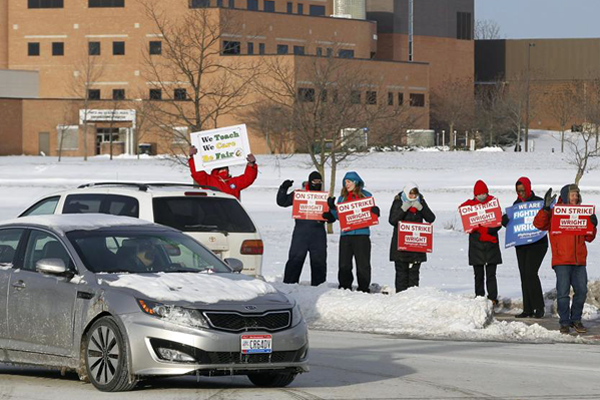
Excerpt from the Dayton Daily News
Wright State University’s board of trustees voted to approve its own contract offer Sunday for the school’s faculty union but it won’t mean an end to the strike as the group’s leaders have already said they will return to the picket line.
Members of Wright State’s chapter of the American Association of University Professors have been on strike for 13 days, potentially making it the longest in state history. They have been picketing at entrances to campus along Colonel Glenn Highway.
“I think this is a reasonable offer,” Wright State president Cheryl Schrader said. “(The offer) has listened to many of the issues that have been brought forth by union leadership…I think in the end this is really about financial considerations that need to occur in order for the university to look forward to financial sustainability.”
The administration has asked that the AAUP-WSU put the proposed contract to a vote but union president Martin Kich said the group would not do that because no “tentative agreement” has been reached yet. Kich called the board’s action “a stunt” and said that he can’t imagine the board of trustees voting on a union-created proposal, simply because AAUP-WSU members approved of it.
Wright State’s budget problems and the issue of health care were the central focus of Sunday’s meeting. Schrader has criticized the union’s previous health care benefits as unsustainable and the “Cadillac” of plans.
Several trustees called for the union to join a university-wide health plan in order to save the school money. Wright State is in the process of digging its way out of a budget crisis after the school reduced spending by around $53 million in fiscal year 2018.
During Saturday’s negotiations, union leaders said they offered to join the uniform health care plan if the administration allowed them to continue bargaining about premiums, deductible and out-of-pocket maximums. The offer would allow the administration to have control over co-pays, drug co-pays and health savings account contributions, among other thins, according to an AAUP-WSU press release.

